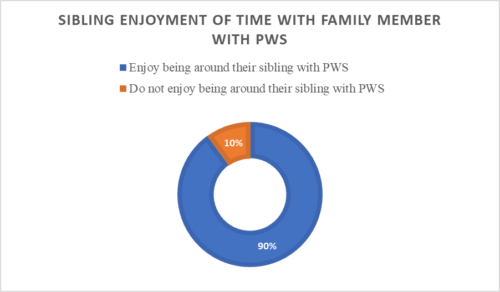
One phenomenon discovered in the research was the emergence of two distinct roles taken on by many of the siblings. The first, the “nurturing” sibling, is the preferred playmate and caregiver to the family member with PWS. The other role, the “triggering” sibling, often has a distant and volatile relationship with their family member with PWS and often antagonizes and teases them. It appears that the “triggering” siblings provoke their siblings into a meltdown so that the sibling has control over when the meltdown will happen and can brace for the chaos. This is often not defiant or aggressive behavior, but an unhealthy survival coping mechanism. The “triggering” siblings also seem to be more sensitive to their environment than “nurturing” siblings. These “triggering” siblings are likely more vulnerable to stressors and risks such as post-traumatic stress disorder (Prior, 2015). Many times, these siblings feel incredibly guilty for distressing their family member with PWS, but often cannot stop this behavior. It is probable that if these “triggering” siblings learn healthy coping mechanisms and gain more control of their environment in other areas, this triggering coping mechanism will no longer be needed, thereby allowing a healthy relationship to form with the family member with PWS.
Ironically, being the “nurturing” sibling also comes with its challenges. Often, these siblings spend a lot of time with their family member with PWS, caregiving and keeping them busy. This abundance of time and responsibility can be straining to the “nurturing” siblings’ emotional and mental health as well as their education and other activities. Many siblings report feeling guilty when they are not helping their family member with PWS. They often volunteer to help even when they are in distress and are not coping well with the situation. Some “nurturing” siblings cannot even leave their house without their family member with PWS throwing a tantrum for them to stay, often forcing siblings to sneak in and out of their own home. “Nurturing” siblings can also be dragged out of family engagements or other activities when the family member with PWS is bored or stressed to help calm them down or divert them. This disturbance can damage the sibling’s social well-being as they miss important interactions and often feel “on edge,” waiting to be pulled out of an activity to help
Tips:
- Work to identify if your children without PWS fall into these roles or share any characteristics with these categories. Consider sitting down with them and reading this article together. See if they relate to one of these roles.
“Nurturing” Siblings:
- Do not allow these siblings to spend large amounts of time with their family member with PWS.
- Ask siblings if they ever feel guilty when they do not help their sibling with PWS or spend time away from them.
- Do not take the family member with PWS to all family engagements. Let the sibling have time where they do not have to anticipate being called upon to help at a family outing.
- It may not be as obvious when these siblings are in distress because they do not act out. Check in with them frequently and take preventive measures to protect them. Help them develop healthy coping mechanisms and establish a relationship wherein they can tell you when they are not okay.
“Triggering” Siblings:
- Pause before chastising your child for teasing or provoking the family member with PWS. Rather, have a conversation and ask how the sibling is doing. Usually, siblings are already feeling guilty and chastising can worsen this and strain their relationship with you. Try to find the root of the problem.
- Tell your child that this behavior is often a coping mechanism and ask if they relate to this. (Have them read this article).
- Work with “triggering” siblings to find healthy coping mechanisms (do this with other siblings as well).
Links to information about building healthy coping mechanisms:
- https://www.verywellfamily.com/coping-skills-for-kids-4586871
- https://www.understood.org/en/friends-feelings/common-challenges/self-control/developing-coping-skills-5-ways-to-help-kids-who-struggle-with-self-control
- https://positivepsychology.com/coping/
Get professional help. Being a sibling to someone with PWS puts individuals at risk for emotional and psychological issues. Have a deliberate plan for emotional well-being and schedule time for important conversations.
Helpful link for finding professional help in your area and under your health insurance: www.psychologytoday.com
References:
Murphy, L., Thornton, J., Thornton, E. (2019). Tips for Supporting Parents. Prader-Willi Syndrome Association (USA). Retrieved from: https://ww.pwsausa.org/2019conventionhandouts/
Prior, M. (2015). Resilience and coping: the role of individual temperament. Oxford Clinical

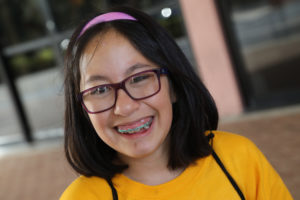
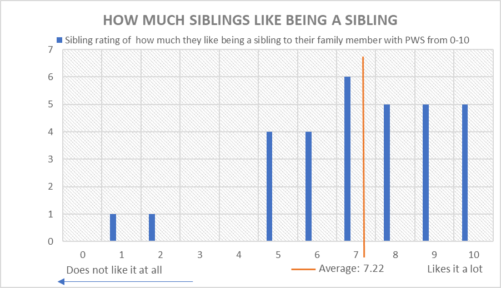
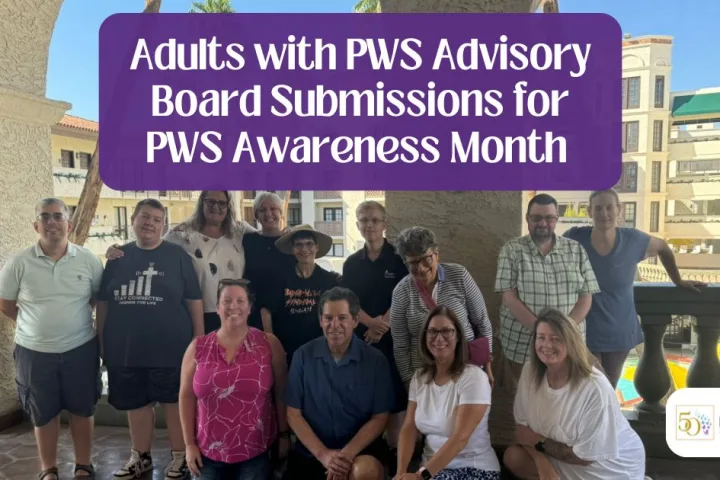
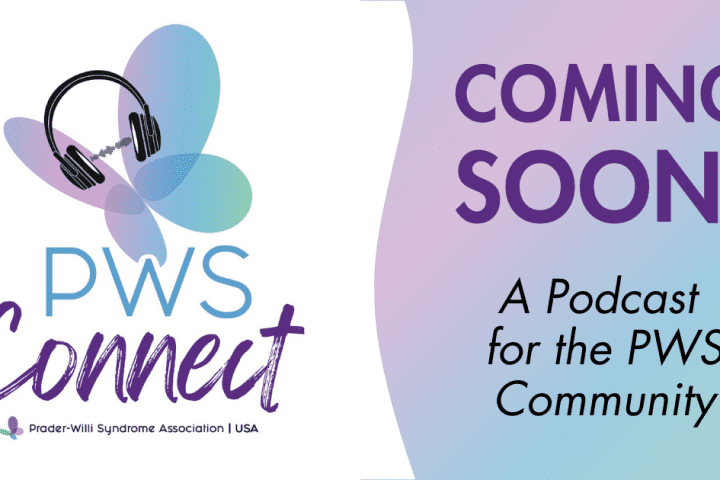

 Perry A. Zirkel has written more than 1,500 publications on various aspects of school law, with an emphasis on legal issues in special education. He writes a regular column for NAESP’s Principal magazine and NASP’s Communiqué newsletter, and he did so previously for Phi Delta Kappan and Teaching Exceptional Children.
Perry A. Zirkel has written more than 1,500 publications on various aspects of school law, with an emphasis on legal issues in special education. He writes a regular column for NAESP’s Principal magazine and NASP’s Communiqué newsletter, and he did so previously for Phi Delta Kappan and Teaching Exceptional Children. Jennifer Bolander has been serving as a Special Education Specialist for PWSA (USA) since October of 2015. She is a graduate of John Carroll University and lives in Ohio with her husband Brad and daughters Kate (17), and Sophia (13) who was born with PWS.
Jennifer Bolander has been serving as a Special Education Specialist for PWSA (USA) since October of 2015. She is a graduate of John Carroll University and lives in Ohio with her husband Brad and daughters Kate (17), and Sophia (13) who was born with PWS. Dr. Amy McTighe is the PWS Program Manager and Inpatient Teacher at the Center for Prader-Willi Syndrome at the Children’s Institute of Pittsburgh. She graduated from Duquesne University receiving her Bachelor’s and Master’s degree in Education with a focus on elementary education, special education, and language arts.
Dr. Amy McTighe is the PWS Program Manager and Inpatient Teacher at the Center for Prader-Willi Syndrome at the Children’s Institute of Pittsburgh. She graduated from Duquesne University receiving her Bachelor’s and Master’s degree in Education with a focus on elementary education, special education, and language arts. Evan has worked with the Prader-Willi Syndrome Association (USA) since 2007 primarily as a Crisis Intervention and Family Support Counselor. Evans works with parents and schools to foster strong collaborative relationships and appropriate educational environments for students with PWS.
Evan has worked with the Prader-Willi Syndrome Association (USA) since 2007 primarily as a Crisis Intervention and Family Support Counselor. Evans works with parents and schools to foster strong collaborative relationships and appropriate educational environments for students with PWS. Staci Zimmerman works for Prader-Willi Syndrome Association of Colorado as an Individualized Education Program (IEP) consultant. Staci collaborates with the PWS multi-disciplinary clinic at the Children’s Hospital in Denver supporting families and school districts around the United States with their child’s Individual Educational Plan.
Staci Zimmerman works for Prader-Willi Syndrome Association of Colorado as an Individualized Education Program (IEP) consultant. Staci collaborates with the PWS multi-disciplinary clinic at the Children’s Hospital in Denver supporting families and school districts around the United States with their child’s Individual Educational Plan. Founded in 2001, SDLC is a non-profit legal services organization dedicated to protecting and advancing the legal rights of people with disabilities throughout the South. It partners with the Southern Poverty Law Center, Protection and Advocacy (P&A) programs, Legal Services Corporations (LSC) and disability organizations on major, systemic disability rights issues involving the Individuals with Disabilities Education Act (IDEA), Americans with Disabilities Act (ADA), and the federal Medicaid Act. Recently in November 2014, Jim retired.
Founded in 2001, SDLC is a non-profit legal services organization dedicated to protecting and advancing the legal rights of people with disabilities throughout the South. It partners with the Southern Poverty Law Center, Protection and Advocacy (P&A) programs, Legal Services Corporations (LSC) and disability organizations on major, systemic disability rights issues involving the Individuals with Disabilities Education Act (IDEA), Americans with Disabilities Act (ADA), and the federal Medicaid Act. Recently in November 2014, Jim retired.